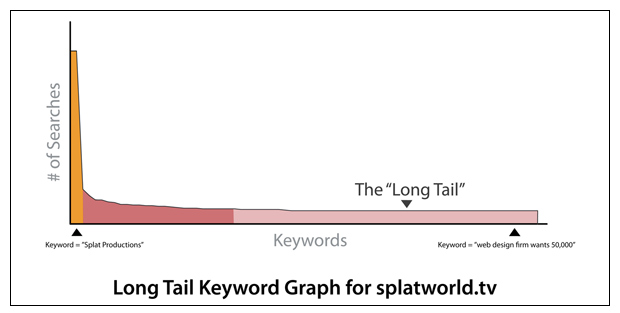
A year or so ago, when we were all in midst of the “your business will be transformed by social media” craze, I was asked to put together a couple of seminars for local realtors on how they could use social media to increase traffic via the web. As is often the case with little understood, media-driven phenomena, the folks I was speaking with had only a passing notion of what the expression “social media” meant. Two names had stuck with them, however: Facebook and Twitter. Rather than yielding to my initial inference that my audience was really interested in learning about these two social media giants, though, I took their intial question, “How can realtors use Social Media?” at face value. And I started doing some research.
Well it turns out that, the more research I did, the more I came to the conclusion that, for most realtors, their foray into the world of online marketing really shouldn’t start with a Facebook page but rather, from changes to their own website. And, specifically, by starting a blog. (My hat goes off here to a fellow I ran into who is a total evangelist of this dogma… you can read more at his real estate blog here…)
Local realtors come to the web with a few distinct challenges and opportunities. A challenge is that many of them are competing against their larger “brand” parents, for whom they sell. For instance, here in Philadelphia, a Prudential Fox and Roach realtor has to “compete” for organic rank with various corporate sites that PruFox maintains. Obviously the parent brand usually has more money to spend on SEO than a franchised realtor who sells for them. Another challenge many of them face is that they are “provided” with a website from an out-of-the-box supplier of realtor websites. These are oftentimes not SEO friendly, too cumbersome to use, and usually — from the perspective of design — ugly.
However, just as there are challenges for realtors, there are also opportunities. One really nice advantage realtors have is that their businesses are, by definition, local. This means that the keyword searches people use to find them are likely to contain geographic limiters. For instance, if I’m looking for a realtor to buy a house from in, say, Moorestown, New Jersey, I’m probably going to type something like “realtor in Moorestown, New Jersey” into my search string. So, then, one thing a realtor in South Jersey doesn’t have to worry about is competing with a realtor in California. (Digression: Since I gave those first seminars, local search has become even more important and, like I often do, I’d refer people to Glenn Gabe’s great ebook on online marketing for small businesses. He has a great section on local search…)
Which brings us to the idea of blogging and long tail search. Essentially, in order to win the game in search, a local realtor has to figure out how to differentiate their business from every other realtor selling in their geographic region. Obviously, winning the game for short searches like “realtor in Moorestown New Jersey” is a goal but, what most business owners usually dismiss is the value of the long tail. Long tail searches are more specific in nature and will occur with less individual frequency but, in the aggregate, can often account for far more traffic than their short term counterparts. And what blogging does is stuff your site with long tail content. So, in our example above, if that same fictional Moorestown realtor were blogging, he would be building up a list of blog posts on various topics with long tail strings. Suppose he had written an entry about a new housing development near a local school, for instance. Well, it just might happen that, a few weeks later, he might look at his Google analytics report and find that variations on the search string “houses in moorestown new jersey near moorestown Friends school” drove a couple of visitors to his site. And another equally specific post drove another couple of visitors. And another still more. And what’s really nifty about long tail searchers is that, in their specificity, they’re more pre-qualified than the short tailers.
But anyway, getting back to the seminars I gave a year ago. My earnest effort to tell my audiences what I thought they needed to hear was basically a complete failure. They didn’t want to be told that they needed to revamp their old website or get a new website entirely. And they certainly didn’t want to be told that they’d have to spend an hour or three every week blogging. They wanted to be told how to set up a Facebook page which would instantly send business their way. And, in the end, I showed them how to set up Facebook pages and explained the basic paradigm behind Twitter.
So, then, where’s the “I told ya so” moment in all this? That moment came when I did some follow up keyword searches recently, in an effort to find some of those realtors I had spoken with a year ago. Alas, they were not easy to find. I suspect they are still struggling with organic search for their businesses. At Splat, however, we rebuilt splatworld.tv this year off of an SEO-friendly content management system and, beginning in mid-summer, reinvigorated our blogging efforts.
Lo and behold, I’m proud to announce that an analysis of six months worth of search analytics proves that the Long Tail lives. Our traffic over the last six months is now 380% higher, as a monthly average, than what it was in June. And, much of that has to do with the long tail keyword searches people are using to find various blog entries we’ve written. I’ll end this post with a graph I put together showing the long tail. The vertical axis shows the total number of queries, by keyword, while the right hand side graphs the variety of search strings used. The important takeaway is that, although the right hand side of this graph is a lot shorter vertically, it extends out a lot farther horizontally. All those different long searches people use to find our site really add up, in the long run!
